Mark Gooden
@TooGooden17
BREAKING: Another bombshell in the Carlos Correa news cycle. The Mets are investigating the possibility that at some point Carlos Correa suffered a career ending injury and since then his twin brother Jean Carlos Correa has taken his place.
10:31 AM · Jan 2, 2023
Re: Just Baseball: Major League teams OTHER THAN the Tribe
3047OK, I'll believe that one.
Like the story that Fausto Carmona was really Roberto Hernandez. And about 5 years older.
Like the story that Fausto Carmona was really Roberto Hernandez. And about 5 years older.
Re: Just Baseball: Major League teams OTHER THAN the Tribe
3048Bowden: What I’m hearing from MLB front offices is the next move for every team
By Jim Bowden
3h ago
46
Save Article
The MLB offseason is heading for home, with the start of spring training a little over a month away and almost all of the top free agents signed. However, as shown by the moves popping up around the league Wednesday, the Hot Stove is still very much on, as trade talks consume front-office execs and the remaining free agents negotiate with teams. So let’s start 2023 with a look at where things stand for every team.
I got in touch with decision-makers in all 30 MLB front offices to find out, directly from them, what organizational needs they hope to fill next this offseason. Please keep in mind they’re not allowed to talk about specific free agents, nor do they openly share trade talks, obviously, because it would hurt their efforts to complete a deal. Still, many were candid in their responses. Here’s what I’m hearing from the major-league executives and what to expect from each team as we near the end of another wild winter.
AL East
Yankees — left field
The Yankees have completed their heavy lifting this offseason by re-signing outfielder Aaron Judge and first baseman Anthony Rizzo, and landing the best left-handed starting pitcher in free agency, Carlos Rodón. (They also added righty reliever Tommy Kahnle.) They are now focused on upgrading in left field. However, they’re comfortable giving a runway to Oswaldo Cabrera, 23, to win the job and they still hope Aaron Hicks can make a comeback in 2023. That said, the Yankees are exploring trade options, including Bryan Reynolds of the Pirates, and free-agent options such as Jurickson Profar, who would be a good match if the price is right.
Jurickson Profar (Gary A. Vasquez / USA Today)
Blue Jays — a complementary outfield bat and more bullpen depth
The Blue Jays are excited about how much they’ve improved their outfield defense, with a starting trio of George Springer in right field and new acquisitions Kevin Kiermaier in center and Daulton Varsho in left. However, Springer and Kiermaier come with injury risk, and the outfield offense is expected to dip compared to last season. Therefore, the Blue Jays would like to add a complementary outfield bat to help enhance their offensive potential. The Blue Jays also would like to add more bullpen depth, likely through free agency, after acquiring two relievers, righty Erik Swanson and minor-league lefty Adam Macko, in the Teoscar Hernández trade with the Mariners.
Rays — more offense
If the Rays are going to contend again in the American League East, like they always seem to do, they’ll need to add another bat or two before Opening Day. They’re confident that young stars Wander Franco and Randy Arozarena will have much better years and that a healthy Brandon Lowe will be a difference-maker again with his power. But the Rays still need more impact bats in their lineup, and I’ll be surprised if they don’t make a move or two on that front.
Orioles — a veteran starting pitcher
The Orioles have signed pitchers Kyle Gibson and Mychal Givens and improved their veteran position-player depth with the acquisitions of second baseman Adam Frazier, catcher James McCann and first baseman/outfielder Ryan O’Hearn. Orioles fans are probably disappointed the team didn’t land a bigger-name starting pitcher, but it wasn’t because of a lack of effort. Baltimore’s front office was aggressive in trying to sign second- and third-tier starting pitchers in free agency (the pool of starters coveted most after Jacob deGrom, Justin Verlander and Carlos Rodón). The Orioles have a strong farm system they could dip into if they find an appealing, blockbuster-type trade, but their “big-splash moves” are probably a year away, which makes sense as it gives their young players further opportunity to develop and prove themselves this season.
Red Sox — additions in the middle of the field (SS/2B/CF)
The Red Sox have spent time building up their prospect pool and now have a deep 40-man roster, so they are looking to consolidate for the right controllable piece(s). In other words, they’re ready to trade prospects and from their major-league depth for a proven player, or players, entering their prime years, preferably players who reside in the middle of the field. The Red Sox front office has taken a lot of heat for its offseason moves, but remember, with six weeks until pitchers and catchers report, they still have plenty of time to improve their roster. According to an industry source, Boston has been working on trades with the Marlins, who have a veteran shortstop (Miguel Rojas) and a proven starter (Pablo López) they’d be willing to move.
ADVERTISEMENT
On Wednesday, the Red Sox reached an agreement with third baseman Rafael Devers on an 11-year, $331 million extension, a huge win that checks off their top offseason priority.
AL Central
Guardians — a complementary bat; an impact bat if one becomes available
The Guardians fulfilled their biggest offseason goals by signing first baseman Josh Bell (who gives them a much-needed middle-of-the-order bat with power from both sides of the plate) and catcher Mike Zunino (a special defensive player who gives them more pop at the position). Now, they are mostly focused on offseason development and preparing their players for the season. However, they’re still looking to add a complementary bat. The Guardians would love to add an impact bat in a trade but don’t see that happening given the market — at least to this point.
White Sox — second base
The White Sox front office is focused on figuring out its starting second baseman, a situation that could be resolved via trade or even by tapping someone on the current roster. In the trade market, they could target players such as Brandon Lowe of the Rays, Brendan Rodgers of the Rockies, Gleyber Torres of the Yankees and Ketel Marte of the Diamondbacks. Internally, Romy González and Leury García are possibilities.
Brendan Rodgers (Jayne Kamin-Oncea / USA Today)
Twins — shortstop and starting pitching depth
The Twins had hoped to re-sign Carlos Correa, which doesn’t look likely even though he’s yet to finalize a deal, so they’re trying to get creative in a trade for a shortstop, with younger or older options possible. They are also focused on adding starting pitching depth.
Tigers — a bat
After working to strengthen their pitching and defense this winter, the Tigers are now looking to add a bat. They are open to prospect-for-prospect trades or even continuing to trade from their bullpen depth, with adding offense their main priority.
Royals — a reliever and a right-handed bat who can play 3B/2B
The Royals are focused on acquiring a reliever and a right-handed hitter who can play second and third base. Defense is as much of a priority as offense for this player. The Royals have added a couple of veteran starting pitchers in free agency (Ryan Yarbrough, Jordan Lyles) and are keeping an eye on other starters who could fall into their price range.
AL West
Astros — a left-handed reliever and a left-handed bat (utility type)
The Astros have had an interesting offseason. On the negative side, general manager James Click departed and AL Cy Young Award winner Justin Verlander left for the Mets. On the positive side, the defending world champs added first baseman/designated hitter José Abreu and re-signed outfielder/DH Michael Brantley and reliever Rafael Montero. Next on their agenda: adding a left-handed reliever and a lefty utility bat.
Mariners — an impact left fielder or a right-handed-hitting platoon outfielder and another bat to face righties
After acquiring right fielder Teoscar Hernández and second baseman Kolten Wong in separate trades, the Mariners have made it clear to the industry that they’re not done. In fact, they are going hard after an impact left fielder, such as Bryan Reynolds, or a right-handed-hitting platoon left fielder, like free agent Andrew McCutchen, as well as another hitter with strong splits against righty pitching. The Mariners are using starting pitchers Chris Flexen and/or Marco Gonzales as their main trade bait, but they’re open to trading more of their top prospects in the right deal.
Andrew McCutchen (Jeff Hanisch / USA Today)
Angels — a shortstop, the bullpen and a starting pitcher
The Angels have added depth throughout the roster during a strong offseason. They traded for outfielder Hunter Renfroe and infielders Gio Urshela and Brandon Drury, and improved their pitching staff by signing starter Tyler Anderson and reliever Carlos Estévez. They’re now focused on acquiring a shortstop, more bullpen depth and another starting pitcher.
Rangers — an outfielder and bullpen depth
The Rangers’ spending spree is not over. They’ve rebuilt their rotation with newcomers Jacob deGrom, Andrew Heaney, Nathan Eovaldi and Jake Odorizzi, and brought back Martín Pérez, who accepted the qualifying offer. With their starting pitching in place, they’re looking to add a corner outfielder and bullpen depth. It’s great to see the Rangers making this level of commitment to get back to being contenders. Under the leadership of Chris Young and Bruce Bochy, a dynamic and highly intellectual GM/manager tandem, their future is bright.
A’s — everything except catcher
The A’s have the most work to do of all 30 teams, and they know it. Their wait for a new stadium drags on and hovers over everything. They must improve all areas of the organization outside of catching.
NL East
Braves — exploring the trade market and adding depth
The Braves’ offseason has been mixed; they said goodbye to shortstop Dansby Swanson, but said hello to Sean Murphy, one of the game’s best overall catchers, whom they acquired from the A’s in a three-team trade. They said goodbye to reliever Kenley Jansen, who departed in free agency, but said hello to reliever Joe Jiménez, who arrived in a trade with the Tigers and will slot into the back end of their bullpen. They added a decent platoon player, Jordan Luplow, but still could use a stopgap at shortstop (to buy more time until Vaughn Grissom is ready) and a better outfield option. Elvis Andrus and Jurickson Profar are solid fits for those respective needs. The Braves aren’t looking for stars at this point, but they are trying to trade for infield, outfield and bullpen depth.
Mets — finalizing a deal with Carlos Correa and adding a backup outfielder
The Mets have set the tone this offseason, breaking payroll records in the process. Their top focus is trying to finalize a deal with third baseman Carlos Correa after his physical, again, prompted concerns. Ken Rosenthal said this week on “The Athletic Baseball Show” that he expects the Mets and Correa to “get this done at some point” but settle on “a dramatically different deal” from the 12-year, $315 million contract they agreed to two weeks ago, after Correa’s original deal with the Giants broke down. Beyond that, the Mets are trying to acquire another backup outfielder.
Phillies — a back-end reliever
The Phillies, like the rival Mets, have had a tremendous offseason, signing shortstop Trea Turner, starting pitcher Taijuan Walker and relievers Matt Strahm and Craig Kimbrel in free agency. They’re still looking to add another back-end reliever to deploy at the end of games when they have the lead. On Wednesday, they acquired reliever Erich Uelmen for cash in a trade with the Cubs.
Marlins — offense and the bullpen
The Marlins have been active in offering starting pitchers (major leaguers and minor leaguers) to try to acquire offensive players who aren’t arbitration-eligible. Outside of Sandy Alcantara and Edward Cabrera, they’ll listen to offers on almost every other pitcher in the organization, but they haven’t found a deal they like yet. The Marlins are also looking to add right- and left-handed bullpen depth.
Nationals — a starting pitcher who can provide innings
The Nationals added a couple of important veteran pieces in free agency, first baseman Dominic Smith and third baseman Jeimer Candelario. Now, they want to acquire a veteran pitcher who can give them innings and also serve as a possible trade chip at the deadline.
NL Central
Cardinals — assessing the trade and free-agent markets
The Cardinals filled their biggest offseason need when they signed catcher Willson Contreras. Now they are open-minded in looking for ways to improve their team. They are actively pursuing trades and keeping tabs on the free-agent market. It is believed the Cardinals are working to acquire a certain player but want to make sure more specifics don’t become public because it would hurt their chances of completing a trade. They’re not done making moves.
Brewers — improve pitching depth by adding a starter and/or relievers
The Brewers have improved their lineup dramatically this offseason with the acquisitions of DH William Contreras and outfielder Jesse Winker. They have turned their focus to the pitching staff and are looking to add depth pieces who can provide quality innings, whether that’s a back-of-the-rotation starter, multiple relievers or both.
ADVERTISEMENT
Update: Just before this story published Wednesday, The Athletic’s Ken Rosenthal reported the Brewers and left-hander Wade Miley had agreed to a one-year, $4.5 million deal.
Willson Contreras and William Contreras (Brett Davis / USA Today)
Cubs — bullpen depth
The Cubs rebuilt up the middle with the acquisitions of center fielder Cody Bellinger, shortstop Dansby Swanson and catcher Tucker Barnhart. They’ve improved their rotation with the signings of Jameson Taillon and Drew Smyly. Their latest addition is veteran first baseman Eric Hosmer. Overall, they’ve had a strong offseason. Next up: adding bullpen depth.
Pirates — a position player to lengthen the lineup and non-roster depth
The Pirates have worked to lengthen their lineup this offseason with veteran bats, including first basemen/DH Ji-Man Choi and Carlos Santana. They signed veteran catcher Austin Hedges to help their young pitchers, and added a couple of veteran arms, lefty Jarlín García and righty Vince Velasquez, to their staff. They’d like to acquire another position player to further lengthen their lineup and will look to add non-roster depth pieces.
Reds — a starting pitcher who can provide innings until their prospects are ready, and improve the offense
The Reds’ biggest offseason move was signing right fielder Wil Myers. They’ve acquired a couple of backup catchers, Curt Casali and Luke Maile. They’ve made a couple of trades to land infielder/outfielder Nick Solak and middle infielder Kevin Newman, but both are role players more than anything else. The Reds still want to add a starter, preferably in the form of a back-of-the-rotation veteran to hold down the fort until their pitching prospects are major-league-ready. They also want to add a bat or two.
NL West
Dodgers — an outfielder
The Dodgers’ top priority right now is to acquire an outfielder — ideally a center fielder, but it could be a corner outfielder instead. They’d prefer to trade for one and are one of the many teams that have been involved in trade talks with the Pirates regarding Bryan Reynolds.
Padres — a starting pitcher
The Padres have had another strong offseason, topped by the surprise signing of star shortstop Xander Bogaerts. They brought back right-handers Robert Suarez and Nick Martinez on multiyear deals, signed veteran infielder/designated hitter Matt Carpenter and landed righty Seth Lugo in a good under-the-radar signing. San Diego would like to land another starting pitcher if the right one becomes available in trade.
Giants — impact players
The Giants have had a solid offseason, even though they lost out on Aaron Judge and Carlos Correa in free agency despite strong offers. They signed outfielders Mitch Haniger and Michael Conforto and added three quality major-league pitchers — Sean Manaea, Ross Stripling and Taylor Rogers — on multiyear contracts. They would like to add more impact players, which they tried to do with Judge and Correa, but at this point might have to wait until the trade deadline or next offseason to accomplish that.
Diamondbacks — pitching
The Diamondbacks deserve strong marks this offseason for acquiring catcher and top prospect Gabriel Moreno from the Blue Jays and outfielder Kyle Lewis from the Mariners in separate trades. They’ve added quality veteran depth players such as third baseman Evan Longoria and reliever Miguel Castro. Next on their to-do list: more pitching. (They’ve just re-signed starting pitcher Zach Davies, according to multiple reports.)
Rockies — two pitchers and a left-handed-hitting outfielder
The Rockies have tried to acquire a left-handed-hitting outfielder but missed out on Brandon Nimmo, Andrew Benintendi and Cody Bellinger; nevertheless, they’re committed to landing one before spring training, with the switch-hitting Jurickson Profar a real possibility. In addition, they want to add two more pitchers to their staff to improve their overall depth.
By Jim Bowden
3h ago
46
Save Article
The MLB offseason is heading for home, with the start of spring training a little over a month away and almost all of the top free agents signed. However, as shown by the moves popping up around the league Wednesday, the Hot Stove is still very much on, as trade talks consume front-office execs and the remaining free agents negotiate with teams. So let’s start 2023 with a look at where things stand for every team.
I got in touch with decision-makers in all 30 MLB front offices to find out, directly from them, what organizational needs they hope to fill next this offseason. Please keep in mind they’re not allowed to talk about specific free agents, nor do they openly share trade talks, obviously, because it would hurt their efforts to complete a deal. Still, many were candid in their responses. Here’s what I’m hearing from the major-league executives and what to expect from each team as we near the end of another wild winter.
AL East
Yankees — left field
The Yankees have completed their heavy lifting this offseason by re-signing outfielder Aaron Judge and first baseman Anthony Rizzo, and landing the best left-handed starting pitcher in free agency, Carlos Rodón. (They also added righty reliever Tommy Kahnle.) They are now focused on upgrading in left field. However, they’re comfortable giving a runway to Oswaldo Cabrera, 23, to win the job and they still hope Aaron Hicks can make a comeback in 2023. That said, the Yankees are exploring trade options, including Bryan Reynolds of the Pirates, and free-agent options such as Jurickson Profar, who would be a good match if the price is right.
Jurickson Profar (Gary A. Vasquez / USA Today)
Blue Jays — a complementary outfield bat and more bullpen depth
The Blue Jays are excited about how much they’ve improved their outfield defense, with a starting trio of George Springer in right field and new acquisitions Kevin Kiermaier in center and Daulton Varsho in left. However, Springer and Kiermaier come with injury risk, and the outfield offense is expected to dip compared to last season. Therefore, the Blue Jays would like to add a complementary outfield bat to help enhance their offensive potential. The Blue Jays also would like to add more bullpen depth, likely through free agency, after acquiring two relievers, righty Erik Swanson and minor-league lefty Adam Macko, in the Teoscar Hernández trade with the Mariners.
Rays — more offense
If the Rays are going to contend again in the American League East, like they always seem to do, they’ll need to add another bat or two before Opening Day. They’re confident that young stars Wander Franco and Randy Arozarena will have much better years and that a healthy Brandon Lowe will be a difference-maker again with his power. But the Rays still need more impact bats in their lineup, and I’ll be surprised if they don’t make a move or two on that front.
Orioles — a veteran starting pitcher
The Orioles have signed pitchers Kyle Gibson and Mychal Givens and improved their veteran position-player depth with the acquisitions of second baseman Adam Frazier, catcher James McCann and first baseman/outfielder Ryan O’Hearn. Orioles fans are probably disappointed the team didn’t land a bigger-name starting pitcher, but it wasn’t because of a lack of effort. Baltimore’s front office was aggressive in trying to sign second- and third-tier starting pitchers in free agency (the pool of starters coveted most after Jacob deGrom, Justin Verlander and Carlos Rodón). The Orioles have a strong farm system they could dip into if they find an appealing, blockbuster-type trade, but their “big-splash moves” are probably a year away, which makes sense as it gives their young players further opportunity to develop and prove themselves this season.
Red Sox — additions in the middle of the field (SS/2B/CF)
The Red Sox have spent time building up their prospect pool and now have a deep 40-man roster, so they are looking to consolidate for the right controllable piece(s). In other words, they’re ready to trade prospects and from their major-league depth for a proven player, or players, entering their prime years, preferably players who reside in the middle of the field. The Red Sox front office has taken a lot of heat for its offseason moves, but remember, with six weeks until pitchers and catchers report, they still have plenty of time to improve their roster. According to an industry source, Boston has been working on trades with the Marlins, who have a veteran shortstop (Miguel Rojas) and a proven starter (Pablo López) they’d be willing to move.
ADVERTISEMENT
On Wednesday, the Red Sox reached an agreement with third baseman Rafael Devers on an 11-year, $331 million extension, a huge win that checks off their top offseason priority.
AL Central
Guardians — a complementary bat; an impact bat if one becomes available
The Guardians fulfilled their biggest offseason goals by signing first baseman Josh Bell (who gives them a much-needed middle-of-the-order bat with power from both sides of the plate) and catcher Mike Zunino (a special defensive player who gives them more pop at the position). Now, they are mostly focused on offseason development and preparing their players for the season. However, they’re still looking to add a complementary bat. The Guardians would love to add an impact bat in a trade but don’t see that happening given the market — at least to this point.
White Sox — second base
The White Sox front office is focused on figuring out its starting second baseman, a situation that could be resolved via trade or even by tapping someone on the current roster. In the trade market, they could target players such as Brandon Lowe of the Rays, Brendan Rodgers of the Rockies, Gleyber Torres of the Yankees and Ketel Marte of the Diamondbacks. Internally, Romy González and Leury García are possibilities.
Brendan Rodgers (Jayne Kamin-Oncea / USA Today)
Twins — shortstop and starting pitching depth
The Twins had hoped to re-sign Carlos Correa, which doesn’t look likely even though he’s yet to finalize a deal, so they’re trying to get creative in a trade for a shortstop, with younger or older options possible. They are also focused on adding starting pitching depth.
Tigers — a bat
After working to strengthen their pitching and defense this winter, the Tigers are now looking to add a bat. They are open to prospect-for-prospect trades or even continuing to trade from their bullpen depth, with adding offense their main priority.
Royals — a reliever and a right-handed bat who can play 3B/2B
The Royals are focused on acquiring a reliever and a right-handed hitter who can play second and third base. Defense is as much of a priority as offense for this player. The Royals have added a couple of veteran starting pitchers in free agency (Ryan Yarbrough, Jordan Lyles) and are keeping an eye on other starters who could fall into their price range.
AL West
Astros — a left-handed reliever and a left-handed bat (utility type)
The Astros have had an interesting offseason. On the negative side, general manager James Click departed and AL Cy Young Award winner Justin Verlander left for the Mets. On the positive side, the defending world champs added first baseman/designated hitter José Abreu and re-signed outfielder/DH Michael Brantley and reliever Rafael Montero. Next on their agenda: adding a left-handed reliever and a lefty utility bat.
Mariners — an impact left fielder or a right-handed-hitting platoon outfielder and another bat to face righties
After acquiring right fielder Teoscar Hernández and second baseman Kolten Wong in separate trades, the Mariners have made it clear to the industry that they’re not done. In fact, they are going hard after an impact left fielder, such as Bryan Reynolds, or a right-handed-hitting platoon left fielder, like free agent Andrew McCutchen, as well as another hitter with strong splits against righty pitching. The Mariners are using starting pitchers Chris Flexen and/or Marco Gonzales as their main trade bait, but they’re open to trading more of their top prospects in the right deal.
Andrew McCutchen (Jeff Hanisch / USA Today)
Angels — a shortstop, the bullpen and a starting pitcher
The Angels have added depth throughout the roster during a strong offseason. They traded for outfielder Hunter Renfroe and infielders Gio Urshela and Brandon Drury, and improved their pitching staff by signing starter Tyler Anderson and reliever Carlos Estévez. They’re now focused on acquiring a shortstop, more bullpen depth and another starting pitcher.
Rangers — an outfielder and bullpen depth
The Rangers’ spending spree is not over. They’ve rebuilt their rotation with newcomers Jacob deGrom, Andrew Heaney, Nathan Eovaldi and Jake Odorizzi, and brought back Martín Pérez, who accepted the qualifying offer. With their starting pitching in place, they’re looking to add a corner outfielder and bullpen depth. It’s great to see the Rangers making this level of commitment to get back to being contenders. Under the leadership of Chris Young and Bruce Bochy, a dynamic and highly intellectual GM/manager tandem, their future is bright.
A’s — everything except catcher
The A’s have the most work to do of all 30 teams, and they know it. Their wait for a new stadium drags on and hovers over everything. They must improve all areas of the organization outside of catching.
NL East
Braves — exploring the trade market and adding depth
The Braves’ offseason has been mixed; they said goodbye to shortstop Dansby Swanson, but said hello to Sean Murphy, one of the game’s best overall catchers, whom they acquired from the A’s in a three-team trade. They said goodbye to reliever Kenley Jansen, who departed in free agency, but said hello to reliever Joe Jiménez, who arrived in a trade with the Tigers and will slot into the back end of their bullpen. They added a decent platoon player, Jordan Luplow, but still could use a stopgap at shortstop (to buy more time until Vaughn Grissom is ready) and a better outfield option. Elvis Andrus and Jurickson Profar are solid fits for those respective needs. The Braves aren’t looking for stars at this point, but they are trying to trade for infield, outfield and bullpen depth.
Mets — finalizing a deal with Carlos Correa and adding a backup outfielder
The Mets have set the tone this offseason, breaking payroll records in the process. Their top focus is trying to finalize a deal with third baseman Carlos Correa after his physical, again, prompted concerns. Ken Rosenthal said this week on “The Athletic Baseball Show” that he expects the Mets and Correa to “get this done at some point” but settle on “a dramatically different deal” from the 12-year, $315 million contract they agreed to two weeks ago, after Correa’s original deal with the Giants broke down. Beyond that, the Mets are trying to acquire another backup outfielder.
Phillies — a back-end reliever
The Phillies, like the rival Mets, have had a tremendous offseason, signing shortstop Trea Turner, starting pitcher Taijuan Walker and relievers Matt Strahm and Craig Kimbrel in free agency. They’re still looking to add another back-end reliever to deploy at the end of games when they have the lead. On Wednesday, they acquired reliever Erich Uelmen for cash in a trade with the Cubs.
Marlins — offense and the bullpen
The Marlins have been active in offering starting pitchers (major leaguers and minor leaguers) to try to acquire offensive players who aren’t arbitration-eligible. Outside of Sandy Alcantara and Edward Cabrera, they’ll listen to offers on almost every other pitcher in the organization, but they haven’t found a deal they like yet. The Marlins are also looking to add right- and left-handed bullpen depth.
Nationals — a starting pitcher who can provide innings
The Nationals added a couple of important veteran pieces in free agency, first baseman Dominic Smith and third baseman Jeimer Candelario. Now, they want to acquire a veteran pitcher who can give them innings and also serve as a possible trade chip at the deadline.
NL Central
Cardinals — assessing the trade and free-agent markets
The Cardinals filled their biggest offseason need when they signed catcher Willson Contreras. Now they are open-minded in looking for ways to improve their team. They are actively pursuing trades and keeping tabs on the free-agent market. It is believed the Cardinals are working to acquire a certain player but want to make sure more specifics don’t become public because it would hurt their chances of completing a trade. They’re not done making moves.
Brewers — improve pitching depth by adding a starter and/or relievers
The Brewers have improved their lineup dramatically this offseason with the acquisitions of DH William Contreras and outfielder Jesse Winker. They have turned their focus to the pitching staff and are looking to add depth pieces who can provide quality innings, whether that’s a back-of-the-rotation starter, multiple relievers or both.
ADVERTISEMENT
Update: Just before this story published Wednesday, The Athletic’s Ken Rosenthal reported the Brewers and left-hander Wade Miley had agreed to a one-year, $4.5 million deal.
Willson Contreras and William Contreras (Brett Davis / USA Today)
Cubs — bullpen depth
The Cubs rebuilt up the middle with the acquisitions of center fielder Cody Bellinger, shortstop Dansby Swanson and catcher Tucker Barnhart. They’ve improved their rotation with the signings of Jameson Taillon and Drew Smyly. Their latest addition is veteran first baseman Eric Hosmer. Overall, they’ve had a strong offseason. Next up: adding bullpen depth.
Pirates — a position player to lengthen the lineup and non-roster depth
The Pirates have worked to lengthen their lineup this offseason with veteran bats, including first basemen/DH Ji-Man Choi and Carlos Santana. They signed veteran catcher Austin Hedges to help their young pitchers, and added a couple of veteran arms, lefty Jarlín García and righty Vince Velasquez, to their staff. They’d like to acquire another position player to further lengthen their lineup and will look to add non-roster depth pieces.
Reds — a starting pitcher who can provide innings until their prospects are ready, and improve the offense
The Reds’ biggest offseason move was signing right fielder Wil Myers. They’ve acquired a couple of backup catchers, Curt Casali and Luke Maile. They’ve made a couple of trades to land infielder/outfielder Nick Solak and middle infielder Kevin Newman, but both are role players more than anything else. The Reds still want to add a starter, preferably in the form of a back-of-the-rotation veteran to hold down the fort until their pitching prospects are major-league-ready. They also want to add a bat or two.
NL West
Dodgers — an outfielder
The Dodgers’ top priority right now is to acquire an outfielder — ideally a center fielder, but it could be a corner outfielder instead. They’d prefer to trade for one and are one of the many teams that have been involved in trade talks with the Pirates regarding Bryan Reynolds.
Padres — a starting pitcher
The Padres have had another strong offseason, topped by the surprise signing of star shortstop Xander Bogaerts. They brought back right-handers Robert Suarez and Nick Martinez on multiyear deals, signed veteran infielder/designated hitter Matt Carpenter and landed righty Seth Lugo in a good under-the-radar signing. San Diego would like to land another starting pitcher if the right one becomes available in trade.
Giants — impact players
The Giants have had a solid offseason, even though they lost out on Aaron Judge and Carlos Correa in free agency despite strong offers. They signed outfielders Mitch Haniger and Michael Conforto and added three quality major-league pitchers — Sean Manaea, Ross Stripling and Taylor Rogers — on multiyear contracts. They would like to add more impact players, which they tried to do with Judge and Correa, but at this point might have to wait until the trade deadline or next offseason to accomplish that.
Diamondbacks — pitching
The Diamondbacks deserve strong marks this offseason for acquiring catcher and top prospect Gabriel Moreno from the Blue Jays and outfielder Kyle Lewis from the Mariners in separate trades. They’ve added quality veteran depth players such as third baseman Evan Longoria and reliever Miguel Castro. Next on their to-do list: more pitching. (They’ve just re-signed starting pitcher Zach Davies, according to multiple reports.)
Rockies — two pitchers and a left-handed-hitting outfielder
The Rockies have tried to acquire a left-handed-hitting outfielder but missed out on Brandon Nimmo, Andrew Benintendi and Cody Bellinger; nevertheless, they’re committed to landing one before spring training, with the switch-hitting Jurickson Profar a real possibility. In addition, they want to add two more pitchers to their staff to improve their overall depth.
Re: Just Baseball: Major League teams OTHER THAN the Tribe
3049
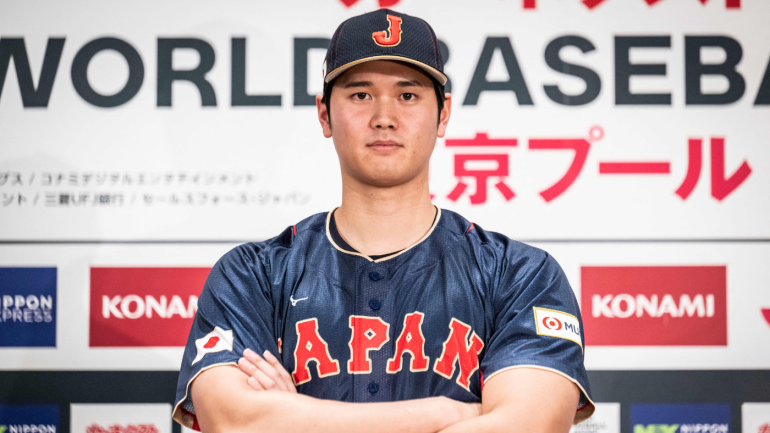
World Baseball Classic: Shohei Ohtani, Yu Darvish and Seiya Suzuki join Team Japan
The invitational begins on March 8
By Mike Axisa
Jan 6, 2023 at 2:32 pm ET
Major leaguers Yu Darvish, Shohei Ohtani, and Seiya Suzuki are among the 12 players on Japan's preliminary roster for the upcoming World Baseball Classic, according to the Associated Press. The rest of the roster will be announced at a later date and is expected to be rounded out by players from Japan's Nippon Professional Baseball league.
"I remember watching the games with my heart pounding," Ohtani said at a press conference on Friday. "Now I get to play. And so I really want to play well. I'm focused on winning."
Ohtani, the Los Angeles Angels' two-way superstar, was on Japan's roster for the 2017 WBC, but had to withdraw from the event due to an ankle injury. His pitching role for this year's WBC is undecided, and back in October, Ohtani told the Los Angeles Times he could "pitch as a middle reliever or closer" depending on the team's needs.
MLB fans were first introduced to Darvish, currently of the San Diego Padres, at the 2009 WBC. He made two starts and two relief appearances that year and blew the save in the bottom of the ninth inning in the championship game against South Korea, though Japan regained the lead in the top of the tenth and Darvish finished the game to earn the win. He was 22 at the time.
Suzuki was also 22 when played in the 2017 WBC and went 3 for 14 with two walks in five games. He made the jump to MLB last offseason and had a successful rookie season with the Chicago Cubs in 2022. He spent the first nine years of his career with the Hiroshima Carp in Japan.
Slugger Munetaka Murakami and righty Roki Sasaki are on Japan's WBC roster in addition to Darvish, Ohtani, and Suzuki. Murakami hit 56 home runs in 2022, breaking Sadaharu Oh's long-standing record for a Japanese-born player. Sasaki threw a 19-strikeout perfect game last April.
Japan won the 2006 and 2009 World Baseball Classics. The Dominican Republic won the 2013 event and the USA won in 2017. The WBC begins March 8 and will conclude with the championship game on March 21.
USA has thus far put together a star-studded roster that includes future Hall of Famers Clayton Kershaw and Mike Trout.
<
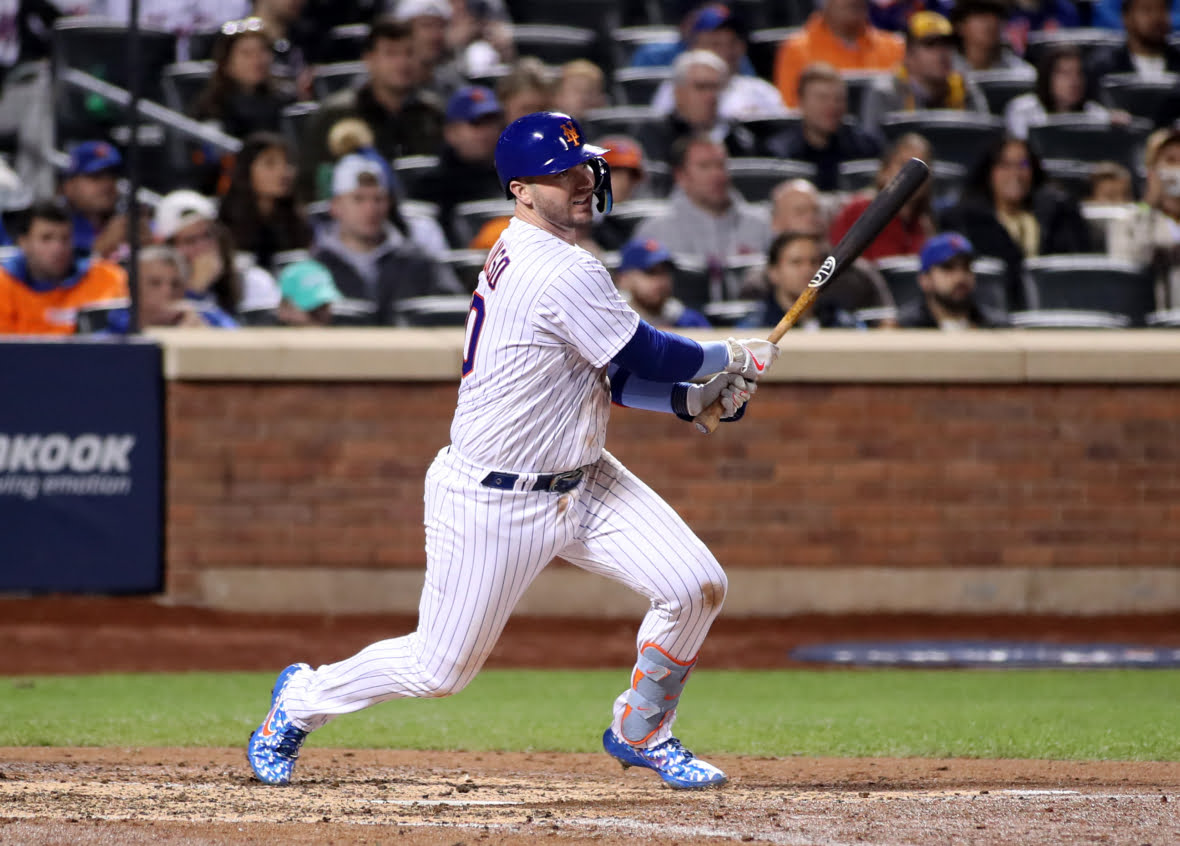
Who is playing in the World Baseball Classic 2023?
This year’s WBC will feature a plethora of MLB All-Stars who will be competing for the right to call their country the home of the best baseball players on the planet. Below, you can find the tentative rosters for some of the top teams in the tourney. Including the United States, and the Dominican Republic.
Code: Select all
United States Japan Dominican Republic Puerto Rico
C – J.T. Realmuto, Phillies C – Shogo Sakakura, C – Gary Sanchez C – Christian Vasquez, Twins
C – Will Smith, Dodgers IF – Yoshi Tsutsugo, C – Francisco Mejia C – Victor Cartini, Brewers
IF – Pete Alonso, Mets IF – Ryosuke Kikuchi IF – Manny Machado, Padres IF – Emmanuel Rivera, Diamondbacks
IF – Paul Goldschmidt, Cardinals IF – Naoki Yoshikawa IF – Vladimir Guerrero, Jays IF – Javier Baez, Tigers
IF – Trevor Story, Red Sox IF – Tetsudo Yamada IF – Ketel Marte, Diamondbacks IF – Francisco Lindor, Mets
IF – Nolan Arenado, Cardinals IF – Munetaka Murakami IF – Robinson Cano IF – Carlos Correa
IF – Bobby Witt Jr., Royals IF – Hayato Sakamoto IF – Wander Franco, Rays IF – Enrique Hernandez, Red Sox
IF – Tim Anderson, White Sox OF – Seiya Suzuki, Cubs IF – Jose Ramirez, Guardians IF – Andrew Velasquez – Angels
IF – Trea Turner, Phillies OF – Masataka Yoshida, Red Sox IF – Jeremy Pena, Astros OF – Jarren Duran, Red Sox
OF – Mookie Betts, Dodgers OF – Shogo Akiyama IF – Rafael Devers, Red Sox OF – George Springer, Blue Jays
OF – Cedric Mullins, Orioles OF – Yuki Yanagita OF – Juan Soto, Padres OF – Eddie Rosario, Braves
OF – Kyle Schwarber, Phillies OF – Shohei Ohtani, Angels OF – Julio Rodriguez, Mariners OF – MJ Melendez, Royals
OF – Mike Trout, Angles SP – Yu Darvish, Padres OF – Starling Marte, Mets SP – Jose Berris, Blue Jays
OF – Kyle Tucker, Astros SP – Masahiro Tanaka OF – Eloy Jimenez, White Sox SP – Marcus Stroman, Cubs
SP – Merrill Kelly, Diamondback SP – Kenta Maeda, Mets OF – Teoscar Herenandez SP – Hector Santiago,
SP – Nestor Cortes, Yankees SP – Yusei Kikuchi, Blue Jays SP _ Sandy Alcantara, Marlins SP – Jose De Leon, Twins
SP – Kyle Freeland, Rockies SP – Koyo Aoyagi SP – Framber Valdez, Astros RP – Edwin Diaz, Mets
SP – Brady Singer, Royals RP – Tomoyuki Sugano SP – Cristian Javier, Astros RP – Seth Lugo, Padres
SP – Adam Wainwright, Cardinals RP – Shun Yamaguchi SP – Luis Castillo, Mariners RP – Lou Trevino, Yankees
SP – Logan Webb, Giants RP – Yoshi Hirano RP – Bryan Abreu, Astros RP – Emilio Pagan, Twins
RP – David Bednar, Pirates RP – Yoshi Hirano RP – Camilo Doval, Giants RP – Jovani Moran, Twins
RP – Dillon Tate, Orioles RP – Hirokazu Sawamura RP – Diego Castillo, Mariners RP – Jorge Lopez, Twins
RP – Devin Williams, Brewers RP – Felix Bautista, Orioles
LP – Clayton Kershaw, Dodgers RP – Rafael Montero, Astros
United States – 2017
Dominican Republic – 2013
Japan – 2009
Japan – 2006
<
“Every day is a new opportunity. You can build on yesterday's success or put its failures behind and start over again. That's the way life is, with a new game every day, and that's the way baseball is.”
-- Bob Feller
Democracy Dies In Darkness - WAPO
-- Bob Feller
Democracy Dies In Darkness - WAPO
Re: Just Baseball: Major League teams OTHER THAN the Tribe
3050
Alex Ramirez, here with the Yomiuri Giants in 2011, headed to Japan after the 2000 season after playing briefly for Cleveland and Pittsburgh.Credit...
Baseball: Ramirez hopes Hall of Fame selection opens door for imports
TOKYO (Kyodo) --
Japan's Baseball Hall of Fame inducted its first imported players in 29 years Friday, with its two newest members, Alex Ramirez and Randy Bass, suggesting others are as deserving.
Bass is one of three players in Japanese pro baseball history to win two batting Triple Crowns, while Ramirez was a two-time MVP, the only imported star to record 2,000 hits in Japan and a successful manager.
Ramirez stood up for imported players in Japan and the United States when he talked about being the second Venezuelan in a hall of fame after infielder Luis Aparicio, a member of America's National Baseball Hall of Fame.
"Looking back at my career and looking back at so many great players who played in Japan, foreign players...I hope and pray many more players will become Hall of Famers in the future," Ramirez said.
"Hopefully, this opens the door for many people who have a great career to be recognized on this stage."
In a recorded interview, Bass was asked how he felt about people considering him Japan's best import player ever.
"There are a lot of great players who have played in Japan, so I take that with a grain of salt," Bass said. "I won't claim I was the greatest foreigner to play in Japan. I'm just happy I could play in Japan."
It took Ramirez, who quit playing in 2013, just five years on the ballot to get in. Bass first became eligible for selection in 1994, was passed over on the player's division ballot, and only got in on his 11th try in the expert's division.
Although both players remain huge fan favorites, Bass' playing days in Japan ended under a cloud. He was released during his sixth season when he went to the United States to be with his son, who was having brain surgery.
That, and the controversy over his being denied a chance to tie Japan's single-season home run record of 55, likely added a decade to his wait for Hall of Fame induction.
On the other hand, Ramirez has worked overtime to build bridges within Japan and remains in the public eye. And while he sailed in on the merits of his career, other deserving players, foreign and domestic, languish on the ballot despite stellar careers.
Outfielder Tuffy Rhodes is the best example. He came to Japan a few years before Ramirez and put together the greatest career of any import player. But he has been on the player's division ballot for years now, and his vote totals have been gradually declining.
Rhodes finished his career with 1,792 hits, 1,100 runs, 464 home runs, 1,269 RBIs and 958 walks. He leads all imported players in runs, homers and walks and is second to Ramirez in hits by 225 and RBIs by three in 434 fewer at-bats.
Like Bass, Rhodes became enmeshed in Japan's home run record controversy. In 2001, he tied Sadaharu Oh's 1964 record of 55 in a season, but then, like Bass before him, he could not get pitchers from Oh's team to throw him anything resembling a strike.
Rhodes learned to speak Japanese well and, like Ramirez, has a true affinity for Japan. However, unlike Ramirez, Rhodes never completely buried his frustration, and that fire is perhaps the best reason why a player of his caliber was named on just 20 percent of this year's ballots.
Whether Rhodes gets in or not may largely depend on whether enough voters heed the words of Ramirez and Bass and recognize their overlooked peers.
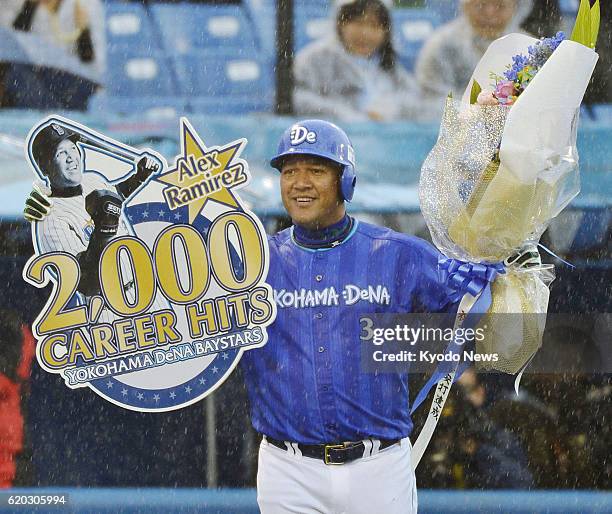
<
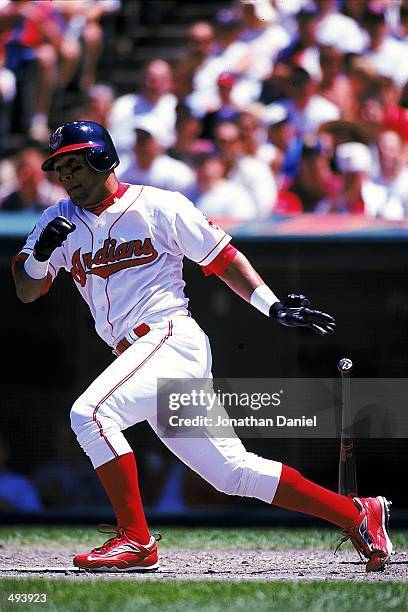
<
“Every day is a new opportunity. You can build on yesterday's success or put its failures behind and start over again. That's the way life is, with a new game every day, and that's the way baseball is.”
-- Bob Feller
Democracy Dies In Darkness - WAPO
-- Bob Feller
Democracy Dies In Darkness - WAPO
Re: Just Baseball: Major League teams OTHER THAN the Tribe
3051Jeff Passan
@JeffPassan
·
6m
Trade news: All-Star second baseman Luis Arraez is going to the Miami Marlins and right-hander Pablo Lopez is headed to the Minnesota Twins, sources tell ESPN. Deal is done. Players are being informed right now. More are involved.
@JeffPassan
·
6m
Trade news: All-Star second baseman Luis Arraez is going to the Miami Marlins and right-hander Pablo Lopez is headed to the Minnesota Twins, sources tell ESPN. Deal is done. Players are being informed right now. More are involved.
Re: Just Baseball: Major League teams OTHER THAN the Tribe
3052Received new replies
Jeff Passan
@JeffPassan
·
36m
Full trade, per ESPN sources:
Marlins receive: 2B Luis Arráez
Twins receive: RHP Pablo López, SS Jose Salas, OF Byron Chourio
Jeff Passan
@JeffPassan
·
35m
Minnesota gets rotation piece and two very talented young players. Miami gets three years of club control with the reigning American League batting champ.
Jeff Passan
@JeffPassan
·
36m
Full trade, per ESPN sources:
Marlins receive: 2B Luis Arráez
Twins receive: RHP Pablo López, SS Jose Salas, OF Byron Chourio
Jeff Passan
@JeffPassan
·
35m
Minnesota gets rotation piece and two very talented young players. Miami gets three years of club control with the reigning American League batting champ.
Re: Just Baseball: Major League teams OTHER THAN the Tribe
3053Royals Sign Aroldis Chapman
This story is big mainly because of the name, not the stats. The Royals signed Aroldis Chapman to a one-year $3.75 million dollar deal for the 2023 season.
Chapman is far from the dominant reliever he once was. In 2022 he had a 4.46 ERA and gave saw his strikeout numbers decline. In 2021 he had an SO9 of 15.5 but in 2022 that was down to 10.7
There was a lot of drama between him and the New York Yankees which eventually led to him being left off the playoff roster along with his regression.
You can't blame the Royals for taking a shot at him though. Having a deep bullpen is never negative and if he does turn out to produce at a high rate Kansas City could always flip him at the deadline.
This story is big mainly because of the name, not the stats. The Royals signed Aroldis Chapman to a one-year $3.75 million dollar deal for the 2023 season.
Chapman is far from the dominant reliever he once was. In 2022 he had a 4.46 ERA and gave saw his strikeout numbers decline. In 2021 he had an SO9 of 15.5 but in 2022 that was down to 10.7
There was a lot of drama between him and the New York Yankees which eventually led to him being left off the playoff roster along with his regression.
You can't blame the Royals for taking a shot at him though. Having a deep bullpen is never negative and if he does turn out to produce at a high rate Kansas City could always flip him at the deadline.
“Every day is a new opportunity. You can build on yesterday's success or put its failures behind and start over again. That's the way life is, with a new game every day, and that's the way baseball is.”
-- Bob Feller
Democracy Dies In Darkness - WAPO
-- Bob Feller
Democracy Dies In Darkness - WAPO
Re: Just Baseball: Major League teams OTHER THAN the Tribe
3054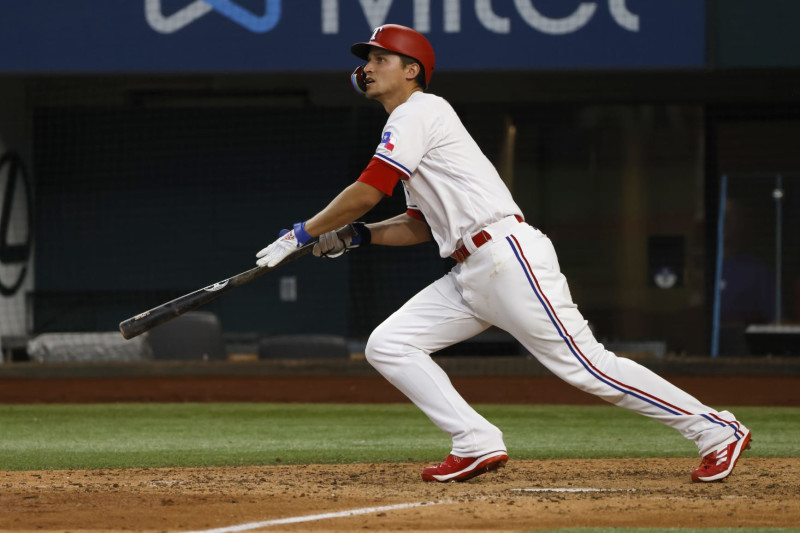
The MLB Players Most Likely to Be Impacted by Shift Ban Rule Change
ZACHARY D. RYMER
JANUARY 22, 2023
Out of the new rules that will take effect during the 2023 Major League Baseball season, arguably the most welcome is the ban on defensive shifts.
By Anthony Castrovince
@castrovince
A pitch timer, limits on defensive shifts and bigger bases are coming to Major League Baseball in 2023.
Following recent experiments in the Minor Leagues, the recently formed Joint Competition Committee voted Friday in favor of three rule changes aimed at improving pace of play, action and safety at the MLB level.
The pitch timer, defensive shift limits and bigger bases were the only three rules proposed by MLB to the Joint Competition Committee -- a voting body consisting of four active players, six members appointed by MLB and one umpire, that was created as part of the 2022-26 Collective Bargaining Agreement. Though the automatic ball-strike system (AKA “robot umps”) -- and, alternatively, an ABS challenge system -- has been experimented with in select Minor Leagues this season, a formal rule change proposal related to the ABS has not been made to the committee and is not expected for the 2023 season.
"We've tried to address the concerns expressed in a thoughtful way, respectful -- always -- of the history and traditions of the game, and of player concerns," Commissioner Rob Manfred said in a press conference Friday afternoon. "Our guiding star in thinking about changes to the game has always been our fans. 'What do our fans want to see on the field?' We've conducted thorough and ongoing research with our fans, and certain things are really clear. Number 1, fans want games with better pace. Two, fans want more action, more balls in play. And three, fans want to see more of the athleticism of our great players.
"The rule changes we're announcing today have been thoroughly tested and refined for years in the Minor Leagues. Each of these rules have been tested in approximately 8,000 Minor League games dating back to last season, which is the equivalent of 3 1/2 complete Major League seasons."
Here are the details of the three rule changes coming to MLB next season:
PITCH TIMER
In an effort to create a quicker pace of play, there will be a 30-second timer between batters. Between pitches, there will be a 15-second timer with the bases empty and a 20-second timer with runners on base. At last check, the pitch timer had reduced the average time of game in MiLB by about 26 minutes. This rule, which includes limits on throws to first base, has also increased stolen-base attempts. With this rule in place in the Minors this season, steal attempts per game have increased from 2.23 in 2019, at a 68% success rate, to 2.83 in 2022, at a 77% success rate.
The pitcher must begin his motion to deliver the pitch before the expiration of the pitch timer.
Pitchers who violate the timer are charged with an automatic ball. Batters who violate the timer are charged with an automatic strike.
Batters must be in the box and alert to the pitcher by the 8-second mark or else be charged with an automatic strike.
With runners on base, the timer resets if the pitcher attempts a pickoff or steps off the rubber.
Pitchers are limited to two disengagements (pickoff attempts or step-offs) per plate appearance. However, this limit is reset if a runner or runners advance during the plate appearance.
If a third pickoff attempt is made, the runner automatically advances one base if the pickoff attempt is not successful.
Mound visits, injury timeouts and offensive team timeouts do not count as a disengagement.
If a team has used up all five of its allotted mound visits prior to the ninth inning, that team will receive an additional mound visit in the ninth inning. This effectively serves as an additional disengagement.
Umpires may provide extra time if warranted by special circumstances. (So if, as an example, a catcher were to be thrown out on the bases to end the previous half-inning and needed additional time to put on his catching gear, the umpire could allow it.)
[Note that the rule that will be used in MLB is slightly altered from the rule that was used in MiLB this year. In MiLB in 2022, it was a 14-second timer with the bases empty and 18 seconds (Double-A and lower) or 19 seconds (Triple-A) with runners on, with batters required to be in the box by the 9-second mark and a strict limit of two disengagements per plate appearance (that did not reset if the runner advanced). In its most recent week of play, the Minors have seen an average of .45 violations per game.]
DEFENSIVE SHIFT LIMITS
The defensive team must have a minimum of four players on the infield, with at least two infielders completely on either side of second base. These restrictions are intended to increase the batting average on balls in play, to allow infielders to better showcase their athleticism and to restore more traditional outcomes on batted balls. As of this writing, the league-wide batting average on balls in play of .291 in 2022 is six points lower than in 2012 and 10 points lower than in 2006.
The four infielders must be within the outer boundary of the infield when the pitcher is on the rubber.
Infielders may not switch sides. In other words, a team cannot reposition its best defender on the side of the infield the batter is more likely to hit the ball.
If the infielders are not aligned properly at the time of the pitch, the offense can choose an automatic ball or the result of the play.
This rule does not preclude a team from positioning an outfielder in the infield or in the shallow outfield grass in certain situations. But it does prohibit four-outfielder alignments.
BIGGER BASES
The bases, which traditionally have been 15 inches square, will instead be 18 inches square. Home plate is unchanged.
Though this can have a modest impact on stolen-base success rate, the primary goal of this change is to give players more room to operate and to avoid collisions. This is especially important at first base, where fielders have an extra 3-inch advantage to stay out of harm’s way from the baserunner while receiving throws.
This change will create a 4 1/2-inch reduction in the distance between first and second base and between second base and third, which encourages more stolen-base attempts. The bigger bases could also have the effect of reducing oversliding in which a player loses contact with the bag while sliding through it.
Though, to be sure, it depends on who you ask.
The new regulations will require teams to have all four infielders within the outer boundary of the infield, with at least two on either side of second base. This outlaws four-man outfields and, crucially, the typical shift on left-handed batters that came to be used more than half the time between 2020 and 2022. Heck, even shifts on right-handed batters were 16 times more frequent last year than they were in 2015.
As far as which players do and don't figure to benefit from these changes, we've compiled a list of guys who are worth talking about at some length. And just to clarify right off the bat, they're not all lefty hitters with heavy pull tendencies. Those are obviously a big part of the discussion, but we sought to honor the nuance of the situation through variety.
For instance, we want to start off by talking about a handful of prominent pitchers.
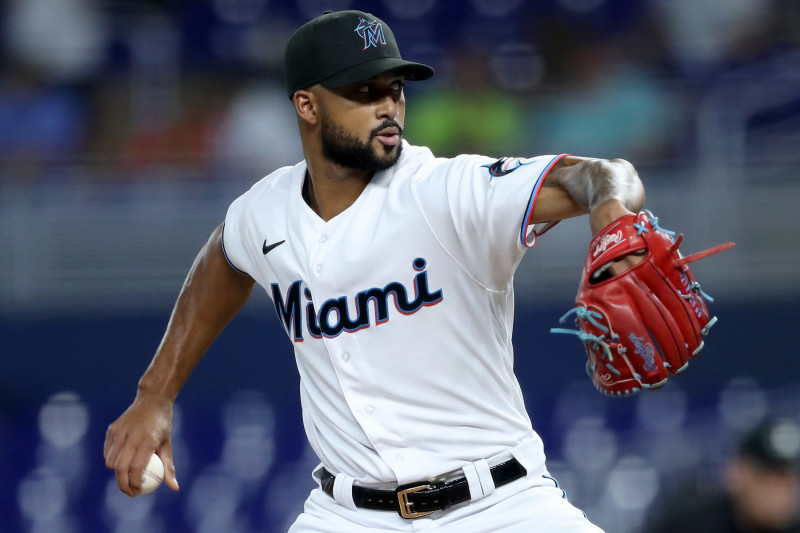
RHP Sandy Alcantara, Miami Marlins
More so than in 2022, Marlins infielders are going to have to work harder for outs when playing behind reigning National League Cy Young Award winner Sandy Alcantara in 2023.
At 44.0 percent, the Marlins ranked sixth in the rate at which they shifted their infielders in 2022. They also ranked fifth with 330 outs made by shortstops and second basemen in shifted formations, and Alcantara was the primary beneficiary in leading MLB in such outs.
It should go without saying that there was good fortune involved there, but it's worth pointing out examples anyway: this hard liner up the middle, this soft liner up the middle and this hard grounder into what might have been a hole between first and second without the shift.
And yet Alcantara almost certainly isn't due for a fall from grace even though he won't be able to rely on the shift for as many outs this season.
A major reason why he got the most outs from shifted middle infielders in 2022 was that he worked a lot, facing 886 batters and pitching 228.2 innings. He also wasn't so much lucky as really good at inducing contact on the ground. As long as he keeps both things up, he won't necessarily need precision positioning to lead MLB in groundouts for a second year in a row.
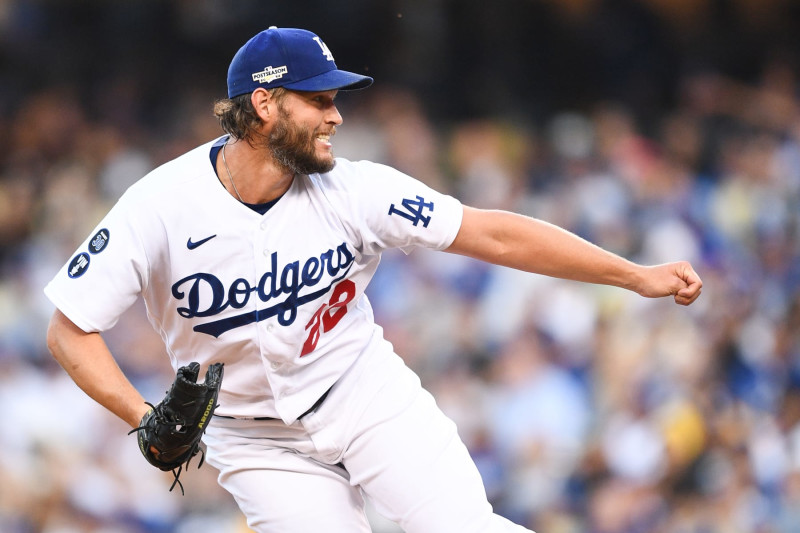
RHP Tony Gonsolin and LHP Clayton Kershaw, Los Angeles Dodgers
It's really all incumbent Dodgers pitchers who are in for a system shock without the shift. The team shifted its infielders a league-high 53.1 percent last season, meaning Dodgers hurlers pitched in front of altered defenses more often than not in 2022.
Yet as high as that figure is, it's actually on the low side relative to the standards for Tony Gonsolin and Clayton Kershaw.
Last year saw the Dodgers employ defensive shifts behind Gonsolin and Kershaw 66.7 and 65.4 percent of the time, respectively. Those were the highest such marks among all hurlers who chucked at least 1,500 pitches, and by a good bit of distance over the 60.5 percent clip that put Toronto Blue Jays right-hander José Berríos in the third spot.
To be sure, the Dodgers' addition of defensive-wiz shortstop Miguel Rojas will help both pitchers. And just as Alcántara and López aren't necessarily in the same boat with their post-shift concerns, the same holds true of Gonsolin and Kershaw.
Whereas opposing teams stacked left-handed batters against the right-handed Gonsolin, they naturally didn't do so against the lefty-throwing Kershaw. As exemplified here, here and here, the former will thus have to get used to the kind of hits that the typical shift on lefties was meant to prevent.
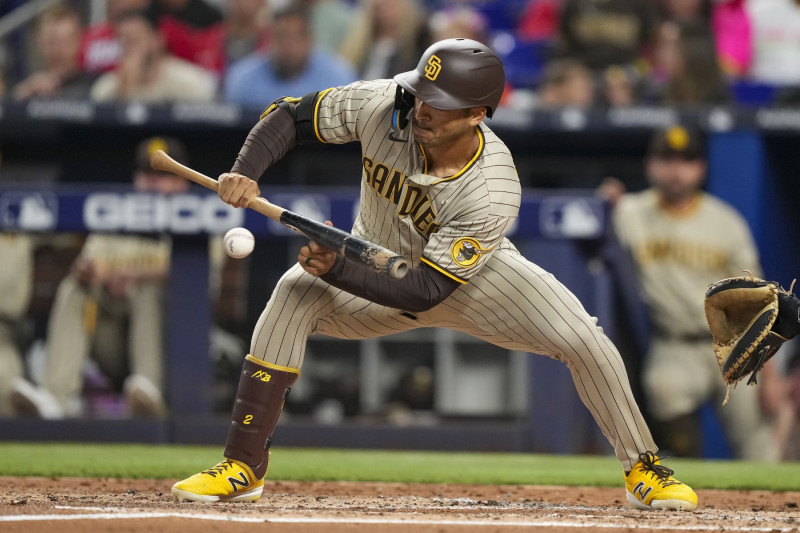
CF Trent Grisham, San Diego Padres
As defensive shifts against lefty batters became more and more frequent, a certain piece of advice made the rounds that went something like this: "Why not just lay down a bunt?"
Most lefty batters didn't take that to heart, and for good reasons. But Trent Grisham? Yeah, he did.
Even though he was shifted on "only" 56.1 percent of the time between 2020 and 2022, the Padres center fielder nonetheless laid down a league-high 19 bunts against the shift. And 10 of those came just this past season, with five producing successful singles.
Five hits isn't much throughout the course of a normal season, but Grisham truly needed every one of them last year. The .184 average with which he finished 2022 is already the worst such mark for any hitter who's ever played in over 150 games in a season. Without those bunt hits, he would have hit an even worse .173.
Not having as many windows to bunt for hits in 2023 should nonetheless be a net positive for Grisham. Because while his bunts against the shift did succeed with some frequency, well-hit balls where the shift used to be (e.g., here, here and here) should work with even greater frequency.
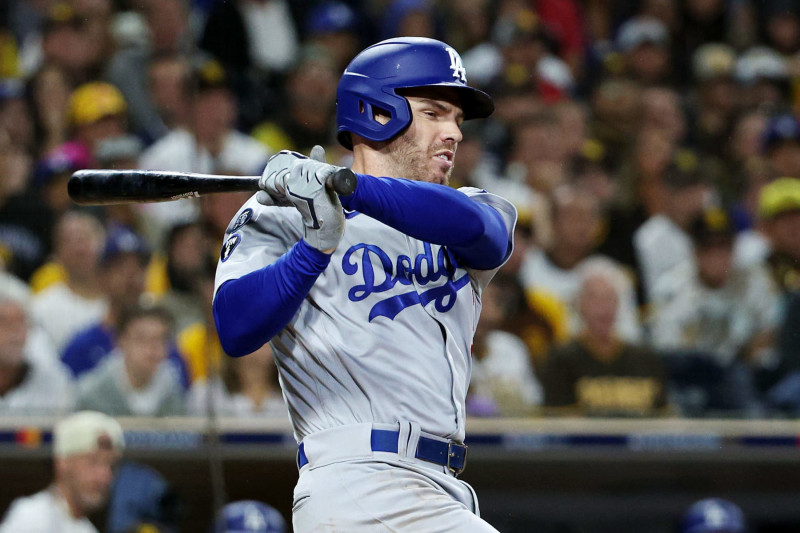
1B Freddie Freeman, Los Angeles Dodgers
If not by bunting, the other common piece of advice for oft-shifted hitters was that they should channel "Wee" Willie Keeler and just hit it where they ain't.
This, too, was always easier said than done. But Freddie Freeman did it a lot, because of course he did.
After starting out at a modest 30.3 percent in 2015, the shift rate against Freeman went above 50 percent annually between 2016 and 2022. Which was odd, considering that bat control has always been as notable a part of his hitting prowess—he's batted at least .300 seven times already—as his power and good swing decisions.
As for how often Freeman made teams pay for shifting on him, it's 548 times if you're just counting the times he went the opposite way against the shift. It's 238 times if you just want to count the oppo hits, and many of them unsurprisingly had low hit probabilities off the bat.
This is not to suggest, however, that Freeman's batting average will suffer now that he can no longer beat the defense with well-placed knocks. Like Grisham, the hits he stands to gain from defenders not automatically being in the way of well-hit balls should level things out.
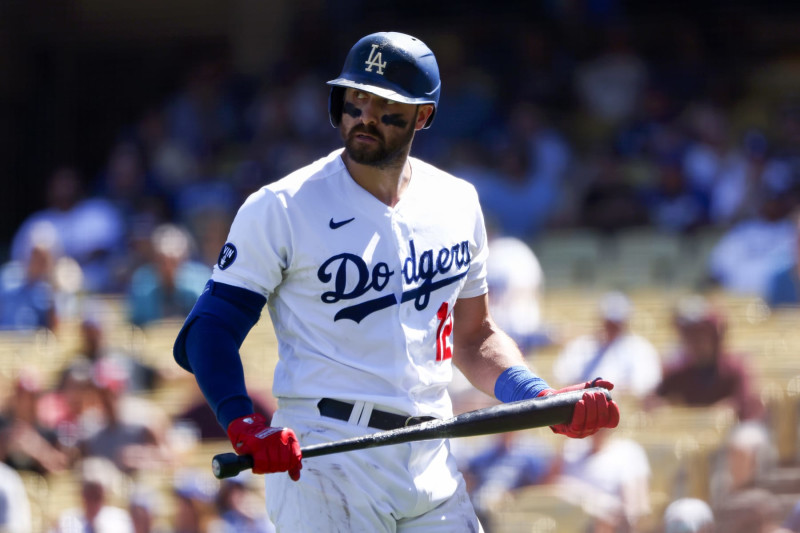
LF Joey Gallo, Minnesota Twins
Joey Gallo has seen infield shifts at better than an 80 percent clip annually since 2017, but that's not what really bothers him.
As he told Jayson Stark of The Athletic, it's the overloaded outfields that really grind his gears:
He was exaggerating, but only sort of. What qualifies as a six-man outfield is disputable—does an infielder become an outfielder simply by standing on the grass?—but it's a fact that Gallo has seen 545 four-man outfields since 2017. Or, more than twice as many as anyone else."I get the defensive strategies, I do. I'm 100 percent not against that. But I think at some point, you have to fix the game a little bit. I mean, I don't understand how I'm supposed to hit a double or triple when I have six guys standing in the outfield."
How much damage such formations did to Gallo's bottom line is hard to say. He's only hit 13 outs into four-man outfields by way of line drives and fly balls. But that doesn't account for any potential alterations to his approach. Notably, he did strike out at a higher rate against four-man outfields (41.4 percent) than he did otherwise (36.4 percent).
In any case, it's hard to imagine Gallo suffering from not having to contend with four-man outfields anymore. One assumes this is part of the reason why the Twins signed him.
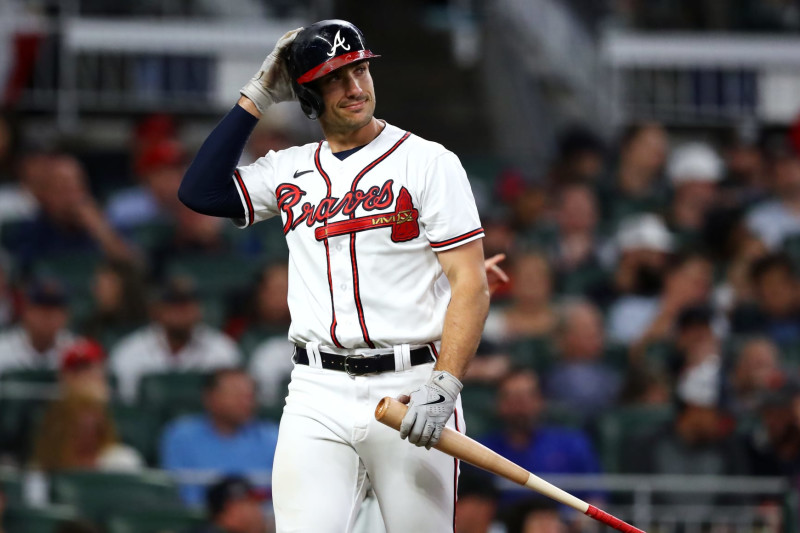
1B Matt Olson, Atlanta
Speaking of left-handed hitters who may have altered their approaches in the face of defensive shifts, let's talk about Matt Olson.
Mike Petriello of MLB.com recently made an argument for why the Atlanta slugger won't be a major beneficiary of the shift ban, particularly noting that he didn't actually miss out that much when he knocked hard-hit grounders against the shift.
What's interesting about Olson, though, is the direction he tended to hit the ball when the shift was on. Though he's firmly among the 10 most oft-shifted hitters of the past three years, his 39.5 percent pull rate against the shift was the lowest of the bunch.
Though Olson has said in the past that he doesn't do things differently against the shift, it's nonetheless hard not to wonder if this is part of the reason his overall pull rate has declined. Which isn't ideal, given that he boasts a stellar 1.138 OPS for his career when he pulls the ball.
Whether he does it on purpose or simply intuitively, what we're saying is that we won't be surprised if Olson's pull rate goes back up in 2023. If so, both he and Atlanta stand to benefit.
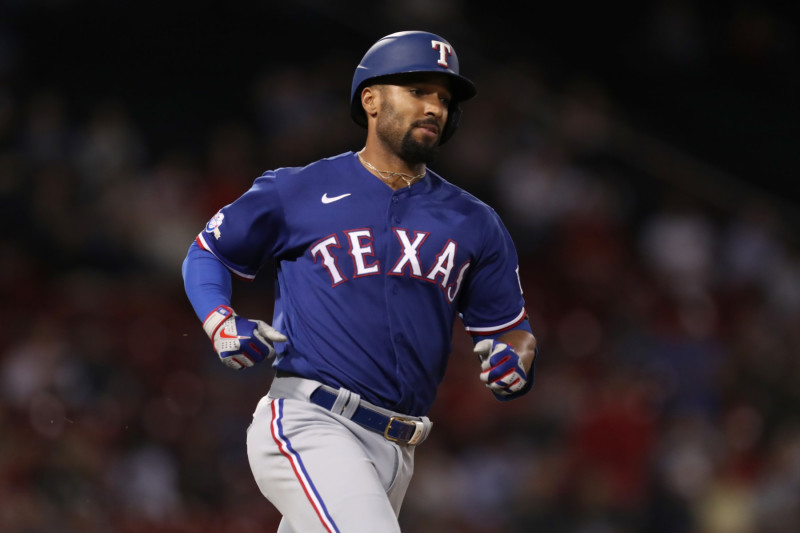
2B Marcus Semien, Texas Rangers
Whereas it's relatively easy to point out shift victims among left-handed batters, it's harder to do so for those of the right-handed vintage for two reasons:
As noted earlier, shifts on righties weren't as common.
Shifts on righties also weren't as exaggerated.
All the same, we feel comfortable in pointing at Marcus Semien. While his 2022 shift rate was second to Seattle Mariners slugger Eugenio Suárez among right-handed hitters, he was second to none at hitting into them.
Semien knocked 209 line drives and ground balls either to his pull side or up the middle against shifted infields. That led righty hitters, as did the 104 that were turned into outs.
This is where it once again gets hard to quantity the damage. Because while knocks like this, this and this are probably hits sans the shift, ones like this and this would probably find the glove of the shortstop anyway.
It's therefore commendable that Semien didn't want to oversell his potential benefits from the shift ban when he spoke to Levi Weaver of The Athletic last September. And yet, he was still justified in pondering the possibilities: "Usually, I try and hit it over the infielders, but when I hit groundballs pull side, there's usually three guys there. So let's see how it changes."
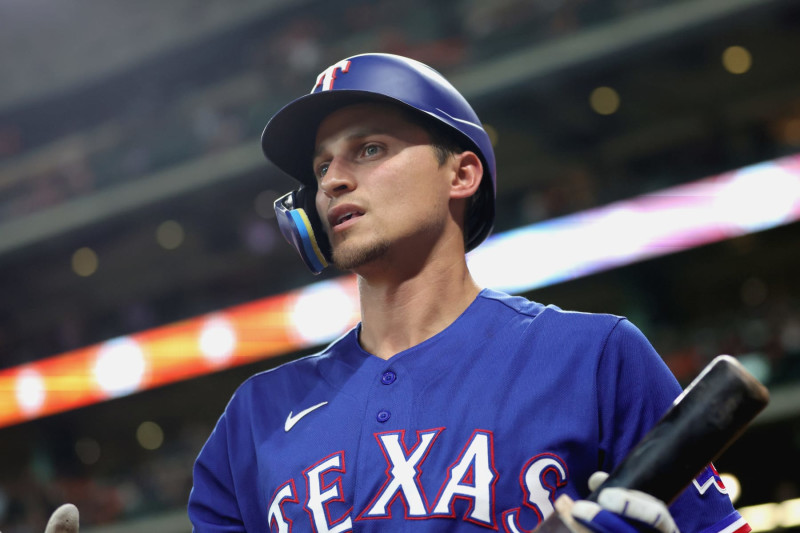
SS Corey Seager, Texas Rangers (and Other LH Hitters)
f not Semien, Corey Seager is the Ranger who absolutely stands to benefit from not having to go up against the shift anymore.
The club's $325 million shortstop was shifted on 93.4 percent of the time last year, marking a new high among hitters who've seen at least 2,000 pitches in a season since 2015. If you count likely hits (i.e., batted balls with an expected batting average of at least .500) fielded by shifted shortstops and second basemen, those may have cost him as many as 26 hits.
That was 12 more than any other left-handed hitter last year. But while that may make Seager the biggest shift victim of 2022, he was hardly the only one.
There were 17 other lefty hitters who lost at least 10 likely hits to the shift, including Olson with 14 and Freeman, Max Kepler and Anthony Santander with 12. It's also worth moving the focus simply to hard-hit balls flagged for outs by shifted shortstops and second basemen, wherein Josh Naylor (28) and Yordan Álvarez and Kyle Schwarber (27 each) stand out.
Basically, about who you'd expect from any exercise designed to get to the bottom of which left-handed hitters got screwed over by the shift. To some degree or another, they should all be better off without it in 2023.
<
“Every day is a new opportunity. You can build on yesterday's success or put its failures behind and start over again. That's the way life is, with a new game every day, and that's the way baseball is.”
-- Bob Feller
Democracy Dies In Darkness - WAPO
-- Bob Feller
Democracy Dies In Darkness - WAPO
Re: Just Baseball: Major League teams OTHER THAN the Tribe
3055The success of division rivals will depend in significant part on the ability of these guys to stay healthy all season:
Byron Buxton, OF, Twins
What Buxton could accomplish over a full, healthy season remains one of baseball’s great unknowns, though his eye-popping pace over the past three years -- 51 homers, 14 steals and 8.9 bWAR per 162 games -- provides some basis of what that might look like. The ultra-talented center fielder has been dogged by injuries throughout his career, playing more than 92 games in a season only once (140 in 2017). Last year, a right hip strain and a right knee ailment that required season-ending surgery put a damper on his first All-Star campaign. Will Buxton ever put it all together? Who knows. But we can dream.
Eloy Jiménez, OF, White Sox
Baseball’s No. 3-ranked prospect entering 2019, per MLB Pipeline, Jiménez is four years into his career but still hasn’t played a full season. The only year the right-handed slugger didn’t spend time on the injured list was the shortened 2020 campaign, and he’s missed more games than he’s played across the past two years, suffering a rupture of his left pectoral tendon in 2021 and a torn hamstring tendon behind his right knee in 2022. When healthy, Jiménez has flashed prolific power potential, averaging 36 homers and 108 RBIs per 162 games while posting a collective 123 OPS+. If he avoids the IL in 2023, we could see the 26-year-old rank among the AL’s home run leaders.
Luis Robert, OF, White Sox
Like his teammate Jiménez, Robert has missed considerable time over the past two seasons, going down with a right hip flexor strain in 2021 and battling several ailments last year. Still just 25, he isn’t that far removed from his days as one of the top ranked prospects in the game, when he was considered a potential superstar, with plus tools across the board. Though a career .289 average with 36 homers, 26 steals and a 122 OPS+ over 222 games is nothing to sneeze at, he hasn’t quite met expectations thus far, but that could change in 2023.
Byron Buxton, OF, Twins
What Buxton could accomplish over a full, healthy season remains one of baseball’s great unknowns, though his eye-popping pace over the past three years -- 51 homers, 14 steals and 8.9 bWAR per 162 games -- provides some basis of what that might look like. The ultra-talented center fielder has been dogged by injuries throughout his career, playing more than 92 games in a season only once (140 in 2017). Last year, a right hip strain and a right knee ailment that required season-ending surgery put a damper on his first All-Star campaign. Will Buxton ever put it all together? Who knows. But we can dream.
Eloy Jiménez, OF, White Sox
Baseball’s No. 3-ranked prospect entering 2019, per MLB Pipeline, Jiménez is four years into his career but still hasn’t played a full season. The only year the right-handed slugger didn’t spend time on the injured list was the shortened 2020 campaign, and he’s missed more games than he’s played across the past two years, suffering a rupture of his left pectoral tendon in 2021 and a torn hamstring tendon behind his right knee in 2022. When healthy, Jiménez has flashed prolific power potential, averaging 36 homers and 108 RBIs per 162 games while posting a collective 123 OPS+. If he avoids the IL in 2023, we could see the 26-year-old rank among the AL’s home run leaders.
Luis Robert, OF, White Sox
Like his teammate Jiménez, Robert has missed considerable time over the past two seasons, going down with a right hip flexor strain in 2021 and battling several ailments last year. Still just 25, he isn’t that far removed from his days as one of the top ranked prospects in the game, when he was considered a potential superstar, with plus tools across the board. Though a career .289 average with 36 homers, 26 steals and a 122 OPS+ over 222 games is nothing to sneeze at, he hasn’t quite met expectations thus far, but that could change in 2023.
Re: Just Baseball: Major League teams OTHER THAN the Tribe
3056Been following Robert since he was 15 when I first had interest in winter ball.
Robert played in the Cuban National Series (Cuba's top professional base ball league)
All the Cuban baseball players that are in the major leagues played in this league.
It was quite remarkable how well Robert held his own as a teenager in this league.
Age 15: 17G, 28PA, 24AB, 3R, 3H, 1 2B, 0 3B, 0 HR, 1 RBI, 3W 9K
Age 16: 54G, 138PA, 123AB, 21R, 30H, 2 2B, 2 3B, 1 HR, 12 RBI, 8W, 27K
Age 17: 69G, 317PA, 273AB, 68R, 83H, 10 2B, 2 3B, 5 HR, 29 RBI,, 32W, 46K
Age 18: 53G, 232PA, 182AB, 51R, 73H, 12 2B, 2 3B, 12 HR, 40 RBI, 38W, 30K
Interesting to see how he matured as a batter. His final season he had more walks that strikeouts.
He signed with the White Sox for $26 million in 2018 after defecting from Cuba
Robert played in the Cuban National Series (Cuba's top professional base ball league)
All the Cuban baseball players that are in the major leagues played in this league.
It was quite remarkable how well Robert held his own as a teenager in this league.
Age 15: 17G, 28PA, 24AB, 3R, 3H, 1 2B, 0 3B, 0 HR, 1 RBI, 3W 9K
Age 16: 54G, 138PA, 123AB, 21R, 30H, 2 2B, 2 3B, 1 HR, 12 RBI, 8W, 27K
Age 17: 69G, 317PA, 273AB, 68R, 83H, 10 2B, 2 3B, 5 HR, 29 RBI,, 32W, 46K
Age 18: 53G, 232PA, 182AB, 51R, 73H, 12 2B, 2 3B, 12 HR, 40 RBI, 38W, 30K
Interesting to see how he matured as a batter. His final season he had more walks that strikeouts.
He signed with the White Sox for $26 million in 2018 after defecting from Cuba
“Every day is a new opportunity. You can build on yesterday's success or put its failures behind and start over again. That's the way life is, with a new game every day, and that's the way baseball is.”
-- Bob Feller
Democracy Dies In Darkness - WAPO
-- Bob Feller
Democracy Dies In Darkness - WAPO
Re: Just Baseball: Major League teams OTHER THAN the Tribe
3057Robert is supposed to be one of the real big stars of the next decade.
Re: Just Baseball: Major League teams OTHER THAN the Tribe
3059@BNightengale
Chicago #WhiteSox starter Mike Clevinger is indeed being investigated by #MLB for allegations of domestic violence, which ws first reported by
@Britt_Ghiroli
and
@KatieJStrang
2:43 PM · Jan 24, 2023
·
75.4K
Views
Chicago #WhiteSox starter Mike Clevinger is indeed being investigated by #MLB for allegations of domestic violence, which ws first reported by
@Britt_Ghiroli
and
@KatieJStrang
2:43 PM · Jan 24, 2023
·
75.4K
Views
Re: Just Baseball: Major League teams OTHER THAN the Tribe
3060White Sox's Mike Clevinger under investigation by MLB
3:22 PM ET
Alden Gonzalez
ESPN Staff Writer
Mike Clevinger, a starting pitcher who signed with the Chicago White Sox earlier this offseason, is under investigation for allegedly violating Major League Baseball's domestic violence policy.
The investigation stems from allegations made by a woman, Olivia Finestead, who accused Clevinger of physical and emotional abuse toward his three children and their two mothers, herself included. She agreed to be named in an interview with The Athletic.
Finestead has been in touch with MLB investigators since last summer, when Clevinger was a member of the San Diego Padres, according to The Athletic, but mentioned her accusations in a series of stories on her Instagram account on Tuesday. In them, she accused Clevinger of "several acts of domestic violence and child abuse," including throwing "chew spit on a screaming infant child" and strangling her. The latter accusation was posted with a series of photos that alleged to be the result of violent acts committed by Clevinger, a 32-year-old who has been in the major leagues for seven years.
Clevinger's agent, Seth Levinson of ACES, could not immediately be reached for comment.
In a statement, the Padres said, "We are aware of MLB's investigation and completely support their efforts under the Joint Domestic Violence, Sexual Assault and Child Abuse policy. Due to the ongoing investigative process, we cannot comment any further at this time."
The White Sox signed Clevinger to a one-year, $12 million free agent contract near the end of November -- a deal that would pay him a base salary of $8 million in 2023 and included a $12 million mutual option, with a $4 million buyout, for 2024 -- and claimed they did not know about the allegations upon signing him.
"Major League Baseball and the Chicago White Sox take any and all allegations very seriously, and the White Sox are completely supportive of the Joint Domestic Violence, Sexual Assault and Child Abuse policy shared by MLB and the MLBPA," the White Sox said in a statement. "MLB opened an investigation after learning of these allegations. The White Sox were not aware of the allegations or the investigation at the time of his signing. The White Sox will refrain from comment until MLB's investigative process has reached its conclusion."
ESPN's Jesse Rogers contributed to this report.
3:22 PM ET
Alden Gonzalez
ESPN Staff Writer
Mike Clevinger, a starting pitcher who signed with the Chicago White Sox earlier this offseason, is under investigation for allegedly violating Major League Baseball's domestic violence policy.
The investigation stems from allegations made by a woman, Olivia Finestead, who accused Clevinger of physical and emotional abuse toward his three children and their two mothers, herself included. She agreed to be named in an interview with The Athletic.
Finestead has been in touch with MLB investigators since last summer, when Clevinger was a member of the San Diego Padres, according to The Athletic, but mentioned her accusations in a series of stories on her Instagram account on Tuesday. In them, she accused Clevinger of "several acts of domestic violence and child abuse," including throwing "chew spit on a screaming infant child" and strangling her. The latter accusation was posted with a series of photos that alleged to be the result of violent acts committed by Clevinger, a 32-year-old who has been in the major leagues for seven years.
Clevinger's agent, Seth Levinson of ACES, could not immediately be reached for comment.
In a statement, the Padres said, "We are aware of MLB's investigation and completely support their efforts under the Joint Domestic Violence, Sexual Assault and Child Abuse policy. Due to the ongoing investigative process, we cannot comment any further at this time."
The White Sox signed Clevinger to a one-year, $12 million free agent contract near the end of November -- a deal that would pay him a base salary of $8 million in 2023 and included a $12 million mutual option, with a $4 million buyout, for 2024 -- and claimed they did not know about the allegations upon signing him.
"Major League Baseball and the Chicago White Sox take any and all allegations very seriously, and the White Sox are completely supportive of the Joint Domestic Violence, Sexual Assault and Child Abuse policy shared by MLB and the MLBPA," the White Sox said in a statement. "MLB opened an investigation after learning of these allegations. The White Sox were not aware of the allegations or the investigation at the time of his signing. The White Sox will refrain from comment until MLB's investigative process has reached its conclusion."
ESPN's Jesse Rogers contributed to this report.